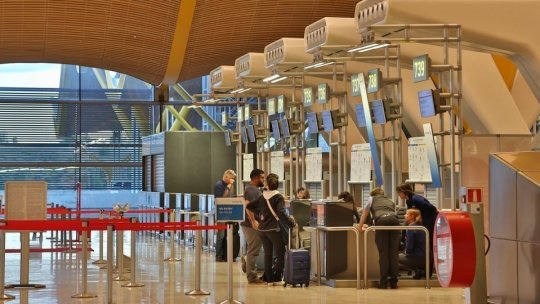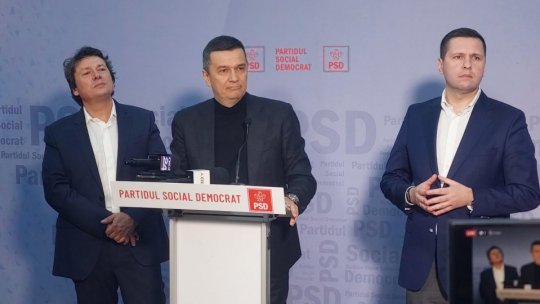Financial Press Review, 14 March
Articles from the dailies Ziarul Financiar, Bursa, Curierul Naţional, Săptămâna Financiară and Capital.

Articol de Dinu Dragomirescu, 14 Martie 2011, 18:55
The Ziarul Financiar opens with the results of a survey on financial priorities in the private sector. The daily points out that ‘in the last five years, the state has had 200 billion Euros in taxes, which it has used to pay pensions, salaries, good and services or has invested’.
‘The main problem with public spending is the lack of transparency’, Valentin Tomşa, General Director of the Bucharest subsidiary of German IT giant SAP Romania, considers.
On the one hand, he believes that ‘if political naming of civil servants continues, no matter what measures are taken, their effect will be restricted and disproportional to the investment’.
The Bursa also prints a long article by Theodor Stolojan on public spending called ‘Economy in healthcare is good for health of economy’. ‘Any kind of reform in the current system, including more healthcare funds, can somewhat improve it, but will not solve the underlying problem’ of the Romanian healthcare system. It is ‘not economically viable and, as a consequence, it will always perform below standards’, the author claims.
Today’s Curierul Naţional opens with the headline ‘Stopping smuggling, a Fata Morgana’. Since 1 January, only one to three out of a hundred trucks are scanned’. As a consequence, ‘captures amount to 6 percent of the entire black market (27 million packs of cigarettes, compared to 450 million packs sold last year)’.
Gabriel Biriş also addresses this subject in Capital Magazine under the headline ‘A new beginning?’ ‘Customs officers that have been arrested are mostly small-time crooks responsible for a small part of over the border smuggling. Most of it (let’s not forget we are talking about the equivalent of 1000 TIRs a year) could only have crossed the border in big transports, not in bags of in trunks. There is also protection from the inside, how else could have such quantities been stored and distributed? The big money is with big transports.
There haven’t been any people involved in such operations arrested. Moreover, everybody is talking about cigarettes, nobody is talking about other important fields: alcohol, fuel, food, clothes. Let’s get something straight: without this level of fraud, our deficit would have been positive! If we want to clean up, we have to do it everywhere. But do we really want to?’ Gabriel Biriş wonders in Capital Magazine.
The author also refers to indirect control methods. ‘It is impossible to control natural persons if they do not declare their fortune and if there is no reference patrimony. But it appears that politicians do not want that’, the author points out. He reiterates the idea that we need a ‘zero moment’, ‘just like the Belgians the Italians, the English or the Germans had, taxing incomes declared voluntarily.
The Ziarul Financiar reads: ‘Shock forecast: Euro falls to 4 RON’. ‘The forecast of the Americans at JP Morgan is shared by more and more analysts’, the daily reads. ‘Isărescu is fighting the exchange rate to ease inflation’, a Săptămâna Financiară headline reads. ‘The National Bank is forced to try and keep prices under control with the help of the exchange rate’.
The Ziarul Financiar opens with the headline ‘Japan has to reinvent itself after the biggest earthquake in its history’. ‘The 127 million Japanese have been living a nightmare these past three days: earthquake, tsunami, nuclear alert’. The Bursa prints an article on the first page with the title ‘Grain prices fall after Japan earthquake’.
Translated by: Gabriela Lungu
MA Student, MTTLC, Bucharest University














